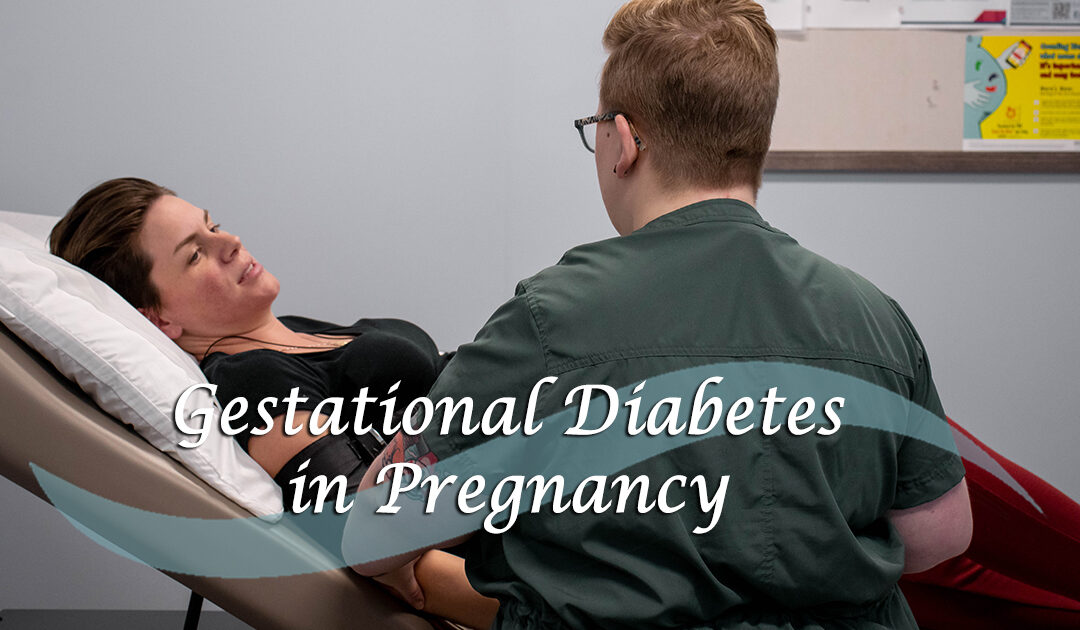Gestational Diabetes in Pregnancy
Gestational Diabetes is diabetes that occurs due to the body changes of pregnancy. You can get Gestational Diabetes even if you have never had diabetes before, so it’s something that we monitor closely as pregnancy progresses.
What is the main cause of gestational diabetes?
The food we consume is turned to glucose, which gives us energy when it enters the bloodstream. The pancreas releases insulin once blood sugar reaches a certain level. When someone has diabetes, the body either is not producing the appropriate amount of insulin or doesn’t respond properly to the insulin that is being made (insulin intolerance.) For pregnant women, when the placenta grows and hormones are surging through the body, this is what can cause some women to become intolerant.
What happens if you have gestational diabetes while pregnant?
Once someone is diagnosed with Gestational Diabetes, they come in for a consultation about how to use their diabetic machine and the schedules for which to use it. We talk about diet and carb counting and other beneficial diets like Keto or Paleo. Diets that have low carbs and low sugars are important for managing Gestational Diabetes.
In these appointments, we also talk about having good oral care because having good oral health helps with keeping blood sugars manageable.
How is Gestational Diabetes tested for?
During pregnancy, our clients will have a glucose challenge test done. This is where they drink a liquid that contains high amounts of glucose. Some time after the drink, we check mom’s blood sugar levels and compare them to the levels we take before the glucose drink. At Charleston Birth Place, we can also offer an organic powder that we can mix as an alternative to the typical glucose drink for someone who would like a more natural option.
How do you treat gestational diabetes in pregnancy?
It’s important to regulate the diet and control blood sugar levels. We can typically monitor Gestational Diabetes throughout pregnancy and for most low-risk, healthy pregnancies, that is sufficient in ensuring health and safety for mom and baby.

